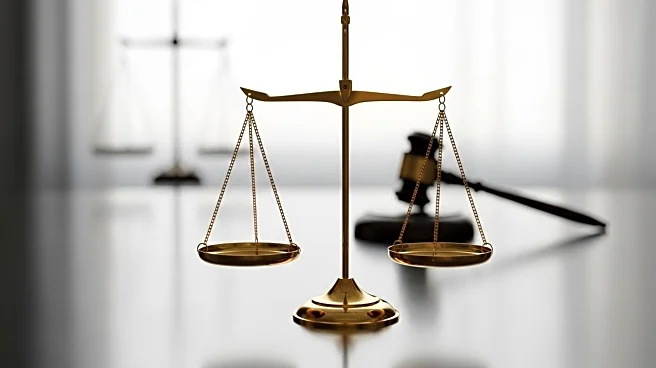What's Happening?
A coalition of healthcare providers, religious groups, university professors, and others have filed a federal lawsuit against the Trump administration's new $100,000 fee for H-1B visa applications. The lawsuit, filed in U.S. District Court in San Francisco, argues that the fee disrupts employers, workers, and federal agencies, and threatens the hiring of healthcare workers and educators. The H-1B visa program is crucial for filling specialized jobs and driving innovation and economic growth in the U.S. Critics claim the fee is an anti-immigration measure that prioritizes wealth over scientific acumen.
Why It's Important?
The H-1B visa program is vital for attracting high-skilled workers to fill jobs that are difficult to fill domestically, particularly in technology and healthcare. The new fee could discourage talented individuals from bringing their expertise to the U.S., impacting industries that rely on these workers. The lawsuit highlights the potential negative effects on hospitals, churches, classrooms, and industries across the country. The fee is seen as a barrier to innovation and economic growth, and its legality is questioned by the plaintiffs.
What's Next?
The lawsuit seeks to block the fee and restore predictability for employers and workers. If successful, it could prevent the fee from being implemented and maintain the current structure of the H-1B visa program. The legal challenge may prompt further scrutiny of the administration's immigration policies and their impact on the U.S. economy and workforce.
Beyond the Headlines
The fee raises ethical concerns about the administration's approach to immigration and its impact on diversity and inclusion in the workforce. The prioritization of wealth and connections over talent and diligence could have long-term implications for the U.S.'s ability to compete globally in innovation and technology.










